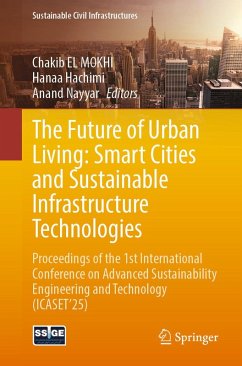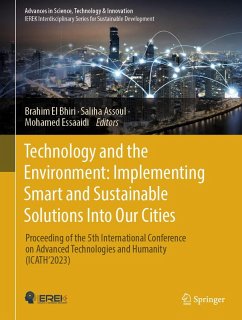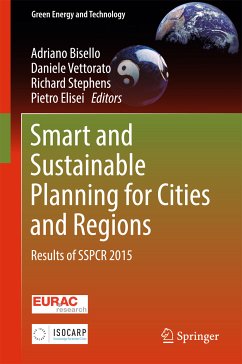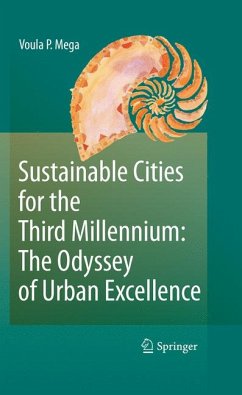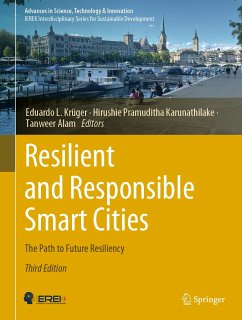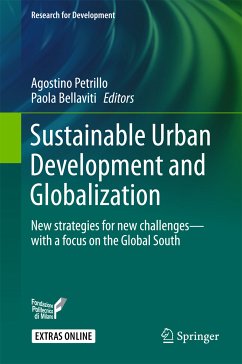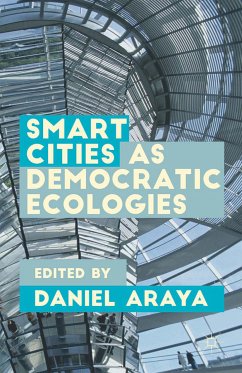
Smart Cities as Democratic Ecologies (eBook, PDF)

PAYBACK Punkte
44 °P sammeln!
The concept of the 'smart city' as the confluence of urban planning and technological innovation has become a predominant feature of public policy discourse. Despite its expanding influence, however, there is little consensus on the precise meaning of a 'smart city'. One reason for this ambiguity is that the term means different things to different disciplines. For some, the concept of the 'smart city' refers to advances in sustainability and green technologies. For others, it refers to the deployment of information and communication technologies as next generation infrastructure. This volume ...
The concept of the 'smart city' as the confluence of urban planning and technological innovation has become a predominant feature of public policy discourse. Despite its expanding influence, however, there is little consensus on the precise meaning of a 'smart city'. One reason for this ambiguity is that the term means different things to different disciplines. For some, the concept of the 'smart city' refers to advances in sustainability and green technologies. For others, it refers to the deployment of information and communication technologies as next generation infrastructure. This volume focuses on a third strand in this discourse, specifically technology driven changes in democracy and civic engagement. In conjunction with issues related to power grids, transportation networks and urban sustainability, there is a growing need to examine the potential of 'smart cities' as 'democratic ecologies' for citizen empowerment and user-driven innovation. What is the potential of 'smart cities' to become platforms for bottom-up civic engagement in the context of next generation communication, data sharing, and application development? What are the consequences of layering public spaces with computationally mediated technologies? Foucault's notion of the panopticon, a metaphor for a surveillance society, suggests that smart technologies deployed in the design of 'smart cities' should be evaluated in terms of the ways in which they enable, or curtail, new urban literacies and emergent social practices.
Dieser Download kann aus rechtlichen Gründen nur mit Rechnungsadresse in A, B, BG, CY, CZ, D, DK, EW, E, FIN, F, GR, HR, H, IRL, I, LT, L, LR, M, NL, PL, P, R, S, SLO, SK ausgeliefert werden.





